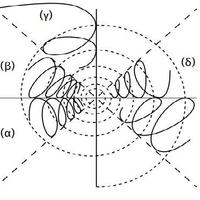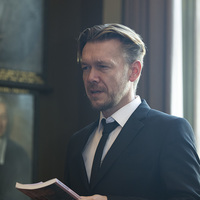
Rosi Braidotti
Utrecht University, Humanities, Director of the Centre for the Humanities and Distinguished University Professor
Rosi Braidotti is Distinguished University Professor at Utrecht University.
She was the founding Director of the Centre for the Humanities at Utrecht University (2007-2016), the founding professor of Gender Studies in the Humanities at Utrecht (1988-2005) and the first scientific director of the Netherlands Research School of Women's Studies. She has successfully supervised 29 PhD dissertations and acts as an external examiner for top-ranked universities in the EU, North America and Australia.
In 2005–2006, she was the Leverhulme Trust, Visiting Professorship in the Law School of Birkbeck College, University of London. In 2001–2003, she held the Jean Monnet Visiting Chair at the Robert Schuman Centre for Advanced Studies of the European Institute in Florence. In 1994-1995 she was a fellow in the School of Social Science at the Institute for Advanced Study at Princeton. She has been a visiting professor at the London School of Economics; Birkbeck College; the University of the Arts in London; the Universities of Bologna; Tampere; Frankfurt; Buenos Aires; Melbourne and the European University Institute.
An active international net worker, she set up in 1989 the Network of Interdisciplinary Women's Studies in Europe (NOISE) within the Erasmus Programme. From 1997 to 2005 she was the founding scientific director of the SOCRATES Thematic Network for European Women’s Studies ATHENA, which was awarded in 2010 the Erasmus Prize of the Lifelong Learning Programme of the European Commission for outstanding contribution to social inclusion. In 2005- 2007 she was the founding Scientific Director of the Marie Curie Early Stage Training consortium ‘Gender Graduates’, funded by the Sixth Framework programme of the European Commission. In 2007-2008 she founded of the European Consortium for The Humanities in the Twenty-first Century; in 2009 she was elected to the Board of the International Consortium of Humanities Institutes and Centres (CHCI).
Phone: +31(0)30 253 5537
Address: Achter de Dom 20
3512 HJ Utrecht
The Netherlands
She was the founding Director of the Centre for the Humanities at Utrecht University (2007-2016), the founding professor of Gender Studies in the Humanities at Utrecht (1988-2005) and the first scientific director of the Netherlands Research School of Women's Studies. She has successfully supervised 29 PhD dissertations and acts as an external examiner for top-ranked universities in the EU, North America and Australia.
In 2005–2006, she was the Leverhulme Trust, Visiting Professorship in the Law School of Birkbeck College, University of London. In 2001–2003, she held the Jean Monnet Visiting Chair at the Robert Schuman Centre for Advanced Studies of the European Institute in Florence. In 1994-1995 she was a fellow in the School of Social Science at the Institute for Advanced Study at Princeton. She has been a visiting professor at the London School of Economics; Birkbeck College; the University of the Arts in London; the Universities of Bologna; Tampere; Frankfurt; Buenos Aires; Melbourne and the European University Institute.
An active international net worker, she set up in 1989 the Network of Interdisciplinary Women's Studies in Europe (NOISE) within the Erasmus Programme. From 1997 to 2005 she was the founding scientific director of the SOCRATES Thematic Network for European Women’s Studies ATHENA, which was awarded in 2010 the Erasmus Prize of the Lifelong Learning Programme of the European Commission for outstanding contribution to social inclusion. In 2005- 2007 she was the founding Scientific Director of the Marie Curie Early Stage Training consortium ‘Gender Graduates’, funded by the Sixth Framework programme of the European Commission. In 2007-2008 she founded of the European Consortium for The Humanities in the Twenty-first Century; in 2009 she was elected to the Board of the International Consortium of Humanities Institutes and Centres (CHCI).
Phone: +31(0)30 253 5537
Address: Achter de Dom 20
3512 HJ Utrecht
The Netherlands
less
Related Authors
Colin Sterling
University of Amsterdam
Asker Bryld Staunæs
Aarhus University
Simone Bignall
University of Technology Sydney
Daryle Rigney
Flinders University of South Australia
steve Hemming
Flinders University of South Australia
Zoltán Boldizsár Simon
Universität Bielefeld
Jannice Käll
Lund University
Rick Dolphijn
Utrecht University
ROCIO CARRASCO
Huelva University
Katherine Bradley
Durham University
InterestsView All (23)









Uploads
Books by Rosi Braidotti
In Posthuman Knowledge, Rosi Braidotti takes a closer look at the impact of these developments on three major areas: the constitution of our subjectivity, the general production of knowledge and the practice of the academic humanities. Drawing on feminist, postcolonial and anti-racist theory, she argues that the human was never a neutral category but one always linked to power and privilege. Hence we must move beyond the old dualities in which Man defined himself, beyond the sexualized and racialized others that were excluded from humanity. Posthuman knowledge, as Braidotti understands it, is not so much an alternative form of knowledge as a critical call: a call to build a multi-layered and multi-directional project that displaces anthropocentrism while pursuing the analysis of the discriminatory and violent aspects of human activity and interaction wherever they occur.
approaches that have shaped and developed new materialism, inhuman theory, critical posthumanism, feminist materialism, and posthuman philosophy. A resource for students and teachers, this comprehensive volume brings together established international scholars and
emerging theorists, for timely and astute definitions of a moving target – posthuman humanities and feminist posthumanities.
The Posthuman Glossary is a volume providing an outline of the critical terms of posthumanity in present-day artistic and intellectual work. It builds on the broad thematic topics of Anthropocene/Capitalocene, eco-sophies, digital activism, algorithmic cultures and security and the inhuman. It outlines potential artistic, intellectual, and activist itineraries of working through the complex reality of the 'posthuman condition', and creates an understanding of the altered meanings of art vis-à-vis critical present-day developments. It bridges missing links across disciplines, terminologies, constituencies and critical communities. This original work will unlock the terms of the posthuman for students and researchers alike.
Arranged thematically, the essays begin with concepts like sexual difference and embodied subjectivity and follow with techno-science, feminism, postsecular citi¬zenship, and the politics of affirmation. Braidotti devel¬ops a distinctly positive critical theory that rejuvenates the experience of political scholarship. Inspired but not confined by Deleuzian vitalism, with its commit¬ment to the ontology of flows, networks, and dynamic transformations, she emphasizes affects, imagination, and creativity and the politics of radical immanence. Incorporating ideas from Nietzsche and Spinoza as well, Braidotti establishes a critical-theoretical frame¬work equal parts critique and creation. Ever mindful of the perils of defining difference in terms of denigra¬tion and the related tendency to subordinate sexual¬ized, racialized, and naturalized others, she explores the eco-philosophical implications of nomadic theory, feminism, and the irreducibility of sexual difference and sexuality.
A short video teaser on both the second edition of "Nomadic Subjects" and "Nomadic Theory" can be found here: http://www.youtube.com/watch?v=-C5fhenwqoY
This thoroughly revised and expanded edition published by Columbia University Press in New York retains all but two of Braidotti’s original essays, including her investigations into epistemology’s relation to the “woman question;” feminism and biomedical eth¬ics; European feminism; and the possible relations between American feminism and European politics and philosophy.
Braidotti takes a bold stand against moral universalism, while offering a vigorous defence of nomadic ethics against the charges of relativism and nihilism. She calls for a new form of ethical accountability that takes "Life" as the subject, not the object, of enquiry. This ethics is presented as a fundamental reconfiguration of our being in the world and it calls for more conceptual creativity in the production of worldviews that can better enable us to behave ethically in a technologically and globally mediated world. The nomadic ethical subject negotiates successfully the complex tension between the multiplicity of political forces on the one hand and the sustained commitment to emancipatory politics on the other.
Transpositions provides an intellectually rich guide to the leading critical debates of our time and will be of great interest to scholars and students throughout the humanities and social sciences.
Cross-referring in a creative way to Deleuze's and Irigaray's respective philosophies of difference, the book addresses key notions such as embodiment, immanence, sexual difference, nomadism and the materiality of the subject. Metamorphoses also focuses on the implications of these theories for cultural criticism and a redefinition of politics. It provides a vivid overview of contemporary culture, with special emphasis on technology, the monstrous imaginary and the recurrent obsession with 'the flesh' in the age of techno-bodies.
This highly original contribution to current debates is written for those who find changes and transformations challenging and necessary. It will be of great interest to students and scholars of philosophy, feminist theory, gender studies, sociology, social theory and cultural studies.
Braidotti's personal, surprising, and lively prose insists on an integration of feminism in mainstream discourse. The essays explore problems that are central to current feminist debates including Western epistemology's relation to the "woman question," feminism and biomedical ethics, European feminism, and how American feminists might relate to European movements.
Braidotti examines contemporary French philosophy as practised by men such as Foucault and Derrida, showing that they rely on a notion of 'the feminine' in order to undermine classical thought, which bears no direct relevance to the historical experience of women.
Braidotti then looks at the attempts of contemporary feminist thinkers in Europe and the United States to show the gendered nature of discursive power games. She discusses the contributions of Luce Irigaray and many other feminist theorists to the understanding of sexual difference and of its implications for philosophy and politics. This book will be of interest to students and researchers in women's studies, feminist theory, social theory, cultural studies, philosophy and literature, and anyone interested in contemporary feminism and the relation between feminist theory, post-structuralism and psychoanalysis.
Avoiding the twin dangers of universalism and relativism, the author strives to produce cartography of contemporary philosophy as a practical enterprise that aims at accounting for and engaging with real-life conditions. A philosophy of relations and dynamic interchanges that does meet the challenge of the times while developing critical tools to resist the violence and indignity of the present.
The author argues forcefully for an interdisciplinary future for the discipline of philosophy and provides chapters on the posthuman, the question of Eurocentrism, gender, ecological thought and the notion of death and extinction. Braidotti defends throughout the need for an ethics of affirmation and empowerment.
• Awarded Honourable Mention in the category of multivolume reference in the 2010 American Publishers Awards for Professional and Scholarly Excellence •
Beginning with Kant and the earliest responses to his critical philosophy and ending with the latest developments in continental thinking across a range of disciplines, these volumes present the first coherent and comprehensive history of the continental tradition of philosophy. Divided, chronologically and thematically, into eight volumes, The History of Continental Philosophy is an indispensable resource for anyone conducting research or teaching in philosophy and related fields in the humanities and social sciences where the influence of continental theory has been widespread. Alan Schrift has brought together an internationally renowned team of volume editors and contributors to provide an unrivalled analysis of the complex and interconnected history of continental philosophy that will become a reference point for all future work in the field. Accessible to both student and scholar, the contributions offer both original insight and masterly synthesis and together represent a major statement on the nature and meaning of the continental tradition in philosophy. It is a landmark publication in the history of ideas
VOLUME 7 After Poststructuralism: Transitions and Transformations
Edited by Rosi Braidotti, Utrecht University, The Netherlands
Series Preface • Introduction, Rosi Braidotti • 1. Postmodernism, Simon Malpas • 2. German Philosophy after 1980: Themes Out of School, Dieter Thomä • 3. The Structuralist Legacy, Patrice Maniglier • 4. Italian Philosophy between 1980 and 1995, Silvia Benso and Brian Schroeder • 5. Continental Philosophy in the Czech Republic, Josef Fulka, Jr. • 6. Third Generation Critical Theory: Benhabib, Fraser, and Honneth, Amy Allen • 7. French and Italian Spinozism, Simon Duffy • 8. Radical Democracy, Lasse Thomassen • 9. Cultural and Postcolonial Studies, Iain Chambers • 10. The “Ethical Turn” in Continental Philosophy in the 1980s, Robert Eaglestone • 11. Feminist Philosophy: Coming of Age, Rosi Braidotti • 12. Continental Philosophy of Religion, Bruce Ellis Benson • 13. The Performative Turn and the Emergence of Post-Analytic Philosophy, José Medina • 14. Out of Bounds: Philosophy in an Age of Transition, Judith Butler & Rosi Braidotti • Chronology • Bibliography • Index
This thoroughly revised and expanded edition retains all but two of Braidotti’s original essays, including her investigations into epistemology’s relation to the “woman question;” feminism and biomedical ethics; European feminism; and the possible relations between American feminism and European politics and philosophy. A new piece integrates Deleuze and Guattari’s concept of the “becoming-minoritarian” more deeply into modern democratic thought, and a chapter on methodology explains Braidotti’s methods while engaging with her critics. A new introduction muses on Braidotti’s provocative legacy.
Papers by Rosi Braidotti
In Posthuman Knowledge, Rosi Braidotti takes a closer look at the impact of these developments on three major areas: the constitution of our subjectivity, the general production of knowledge and the practice of the academic humanities. Drawing on feminist, postcolonial and anti-racist theory, she argues that the human was never a neutral category but one always linked to power and privilege. Hence we must move beyond the old dualities in which Man defined himself, beyond the sexualized and racialized others that were excluded from humanity. Posthuman knowledge, as Braidotti understands it, is not so much an alternative form of knowledge as a critical call: a call to build a multi-layered and multi-directional project that displaces anthropocentrism while pursuing the analysis of the discriminatory and violent aspects of human activity and interaction wherever they occur.
approaches that have shaped and developed new materialism, inhuman theory, critical posthumanism, feminist materialism, and posthuman philosophy. A resource for students and teachers, this comprehensive volume brings together established international scholars and
emerging theorists, for timely and astute definitions of a moving target – posthuman humanities and feminist posthumanities.
The Posthuman Glossary is a volume providing an outline of the critical terms of posthumanity in present-day artistic and intellectual work. It builds on the broad thematic topics of Anthropocene/Capitalocene, eco-sophies, digital activism, algorithmic cultures and security and the inhuman. It outlines potential artistic, intellectual, and activist itineraries of working through the complex reality of the 'posthuman condition', and creates an understanding of the altered meanings of art vis-à-vis critical present-day developments. It bridges missing links across disciplines, terminologies, constituencies and critical communities. This original work will unlock the terms of the posthuman for students and researchers alike.
Arranged thematically, the essays begin with concepts like sexual difference and embodied subjectivity and follow with techno-science, feminism, postsecular citi¬zenship, and the politics of affirmation. Braidotti devel¬ops a distinctly positive critical theory that rejuvenates the experience of political scholarship. Inspired but not confined by Deleuzian vitalism, with its commit¬ment to the ontology of flows, networks, and dynamic transformations, she emphasizes affects, imagination, and creativity and the politics of radical immanence. Incorporating ideas from Nietzsche and Spinoza as well, Braidotti establishes a critical-theoretical frame¬work equal parts critique and creation. Ever mindful of the perils of defining difference in terms of denigra¬tion and the related tendency to subordinate sexual¬ized, racialized, and naturalized others, she explores the eco-philosophical implications of nomadic theory, feminism, and the irreducibility of sexual difference and sexuality.
A short video teaser on both the second edition of "Nomadic Subjects" and "Nomadic Theory" can be found here: http://www.youtube.com/watch?v=-C5fhenwqoY
This thoroughly revised and expanded edition published by Columbia University Press in New York retains all but two of Braidotti’s original essays, including her investigations into epistemology’s relation to the “woman question;” feminism and biomedical eth¬ics; European feminism; and the possible relations between American feminism and European politics and philosophy.
Braidotti takes a bold stand against moral universalism, while offering a vigorous defence of nomadic ethics against the charges of relativism and nihilism. She calls for a new form of ethical accountability that takes "Life" as the subject, not the object, of enquiry. This ethics is presented as a fundamental reconfiguration of our being in the world and it calls for more conceptual creativity in the production of worldviews that can better enable us to behave ethically in a technologically and globally mediated world. The nomadic ethical subject negotiates successfully the complex tension between the multiplicity of political forces on the one hand and the sustained commitment to emancipatory politics on the other.
Transpositions provides an intellectually rich guide to the leading critical debates of our time and will be of great interest to scholars and students throughout the humanities and social sciences.
Cross-referring in a creative way to Deleuze's and Irigaray's respective philosophies of difference, the book addresses key notions such as embodiment, immanence, sexual difference, nomadism and the materiality of the subject. Metamorphoses also focuses on the implications of these theories for cultural criticism and a redefinition of politics. It provides a vivid overview of contemporary culture, with special emphasis on technology, the monstrous imaginary and the recurrent obsession with 'the flesh' in the age of techno-bodies.
This highly original contribution to current debates is written for those who find changes and transformations challenging and necessary. It will be of great interest to students and scholars of philosophy, feminist theory, gender studies, sociology, social theory and cultural studies.
Braidotti's personal, surprising, and lively prose insists on an integration of feminism in mainstream discourse. The essays explore problems that are central to current feminist debates including Western epistemology's relation to the "woman question," feminism and biomedical ethics, European feminism, and how American feminists might relate to European movements.
Braidotti examines contemporary French philosophy as practised by men such as Foucault and Derrida, showing that they rely on a notion of 'the feminine' in order to undermine classical thought, which bears no direct relevance to the historical experience of women.
Braidotti then looks at the attempts of contemporary feminist thinkers in Europe and the United States to show the gendered nature of discursive power games. She discusses the contributions of Luce Irigaray and many other feminist theorists to the understanding of sexual difference and of its implications for philosophy and politics. This book will be of interest to students and researchers in women's studies, feminist theory, social theory, cultural studies, philosophy and literature, and anyone interested in contemporary feminism and the relation between feminist theory, post-structuralism and psychoanalysis.
Avoiding the twin dangers of universalism and relativism, the author strives to produce cartography of contemporary philosophy as a practical enterprise that aims at accounting for and engaging with real-life conditions. A philosophy of relations and dynamic interchanges that does meet the challenge of the times while developing critical tools to resist the violence and indignity of the present.
The author argues forcefully for an interdisciplinary future for the discipline of philosophy and provides chapters on the posthuman, the question of Eurocentrism, gender, ecological thought and the notion of death and extinction. Braidotti defends throughout the need for an ethics of affirmation and empowerment.
• Awarded Honourable Mention in the category of multivolume reference in the 2010 American Publishers Awards for Professional and Scholarly Excellence •
Beginning with Kant and the earliest responses to his critical philosophy and ending with the latest developments in continental thinking across a range of disciplines, these volumes present the first coherent and comprehensive history of the continental tradition of philosophy. Divided, chronologically and thematically, into eight volumes, The History of Continental Philosophy is an indispensable resource for anyone conducting research or teaching in philosophy and related fields in the humanities and social sciences where the influence of continental theory has been widespread. Alan Schrift has brought together an internationally renowned team of volume editors and contributors to provide an unrivalled analysis of the complex and interconnected history of continental philosophy that will become a reference point for all future work in the field. Accessible to both student and scholar, the contributions offer both original insight and masterly synthesis and together represent a major statement on the nature and meaning of the continental tradition in philosophy. It is a landmark publication in the history of ideas
VOLUME 7 After Poststructuralism: Transitions and Transformations
Edited by Rosi Braidotti, Utrecht University, The Netherlands
Series Preface • Introduction, Rosi Braidotti • 1. Postmodernism, Simon Malpas • 2. German Philosophy after 1980: Themes Out of School, Dieter Thomä • 3. The Structuralist Legacy, Patrice Maniglier • 4. Italian Philosophy between 1980 and 1995, Silvia Benso and Brian Schroeder • 5. Continental Philosophy in the Czech Republic, Josef Fulka, Jr. • 6. Third Generation Critical Theory: Benhabib, Fraser, and Honneth, Amy Allen • 7. French and Italian Spinozism, Simon Duffy • 8. Radical Democracy, Lasse Thomassen • 9. Cultural and Postcolonial Studies, Iain Chambers • 10. The “Ethical Turn” in Continental Philosophy in the 1980s, Robert Eaglestone • 11. Feminist Philosophy: Coming of Age, Rosi Braidotti • 12. Continental Philosophy of Religion, Bruce Ellis Benson • 13. The Performative Turn and the Emergence of Post-Analytic Philosophy, José Medina • 14. Out of Bounds: Philosophy in an Age of Transition, Judith Butler & Rosi Braidotti • Chronology • Bibliography • Index
This thoroughly revised and expanded edition retains all but two of Braidotti’s original essays, including her investigations into epistemology’s relation to the “woman question;” feminism and biomedical ethics; European feminism; and the possible relations between American feminism and European politics and philosophy. A new piece integrates Deleuze and Guattari’s concept of the “becoming-minoritarian” more deeply into modern democratic thought, and a chapter on methodology explains Braidotti’s methods while engaging with her critics. A new introduction muses on Braidotti’s provocative legacy.
The focus of the course this year will be on the relationship between the posthuman and the neo-materialist, vital ethics of affirmation, with special emphasis on how they deal with the complex issues around the lived experiences of pain, resistance, suffering and dying.
The course will have lectures by Prof. Dr. Rosi Braidotti (Utrecht University), Dr. Rick Dolphijn (Utrecht University), Lucas van der Velden (Sonic Acts), and Simone Bignall (Flinders, University of South Australia).
More information about the course and the registration process can be found on the website linked below.
https://www.utrechtsummerschool.nl/courses/culture/posthuman_ethics_pain_and_endurance